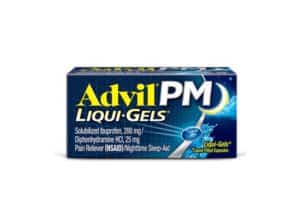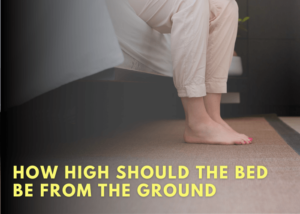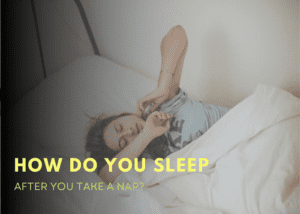Is it possible to find a way of sleeping that will let you breathe effortlessly after a nose job? Does sleeping on your side cause a problem after surgery on your nose?
After a nose job, sleep in an elevated position to reduce swelling and prevent congestion. Side sleeping is not recommended. For the first few days following nose job surgery, try to maintain a 45-degree angle with wedge pillows found in orthopedic stores.
How long do you sleep upright after rhinoplasty?
It is a daunting prospect to find out how to sleep after nose surgery. The swelling around the nose and eyes can be excessive and quite painful, not to mention off-putting to see yourself in this condition.
However, the best way to sleep is in an elevated position. Avoid sleeping on your side. It will only lengthen your recovery time.
Sleeping after rhinoplasty is recognized as complex, so doctors recommend that you sleep in an upright position for a minimum of 7 days.
After 7 days, your doctor will advise you on how to sleep in the coming weeks, depending on your recovery progress.
Sleeping upright reduces the swelling and pressure on the nose after surgery, so draining the fluids using gravity is the best solution for healing quickly.
You will be unlikely to breathe through your nasal passages after rhinoplasty. This will be due to packing to stem bleeding and swelling being experienced.
The best way to maintain sleeping upright is to use an orthopedic wedge. The wedges come in different angles and are used together to find the correct upright position for you to sleep in.
Use ice packs
With your pain management medication, use ice packs to reduce the swelling around your nose.
Keep a piece of surgical lint between the ice pack and your skin to prevent ice burns, and your doctor will advise you how to use ice packs.
Avoid caffeine
Although there is nothing to prohibit you from drinking coffee or tea after a nose job, caffeine will keep you awake when it is vital that you rest as much as possible and preferably sleep through the night.
So, the process is relatively easy to learn how to sleep after a nose job, just sleep upright.
When can I sleep lying down after rhinoplasty?
Ultimately, this will be your doctor’s decision, but as a rule of thumb, 7 to 10 days should be the amount of time it takes for the swelling to subside completely and for your nasal passages to be clear.
Can I yawn after rhinoplasty?
It’s a great question. You should not yawn after rhinoplasty or open your mouth wide.
It may seem almost impossible not to yawn when you feel it coming on, but a yawn can stretch the nasal passages and possibly put a strain on stitches or even cause them to dislodge.
It’s not just yawning. You need to be cautious of, and when you brush your teeth, you will be advised to use a baby brush to prevent you from opening your mouth wide.
How long does a non-surgical nose job take to settle?
Non-surgical nose jobs are becoming quite popular, and for a good reason, the downtime is far less than conventional nose surgery, and the pain and swelling only last for a couple of days.
Nevertheless, the age-old question of sleeping after a nonsurgical nose job comes to the forefront.
It may be true that having non-surgical surgery is a lot simpler. There is always a risk of the nasal passage closing within a short time after surgery.
So like conventional rhinoplasty, you will need to sleep in an elevated position, preferably 45 degrees.
Is this comfortable to sleep at this angle? After nose surgery of any kind, you will find the benefits of sleeping elevated is the speed you recover from the surgery.
Unlike a conventional nose job with a nonsurgical procedure, you will only need to sleep in this position for a few nights. Still, if you can manage more nights, it is advisable to persevere until all the swelling has dissipated.
Can I sleep on my side after a non-surgical rhinoplasty?
No, not immediately. After non-surgical rhinoplasty, your doctor will advise you to sleep upright.
Sleeping on your side will increase pressure in your nose and increase the potential for swelling.
If you have had fillers as part of your nonsurgical nose jobs, the fillers may migrate, affecting the desired result.
The only way is upright.
It may sound like a difficult way to sleep, but with orthopedic wedges that are available online, you can support your back in an upright position and still get a reasonably good night’s sleep.
Can you lay down after a nosebleed?
Nosebleeds come in all shapes and sizes, from a minute amount of blood to a disturbing heavy continuous flow.
Often you never really get to the bottom of your nose bleeds, especially if they are infrequent. They become one of life’s little hassles that we live with.
Your nose bleed could be caused by an allergy or dry air in your bedroom, or there could be an underlying illness that needs to be treated.
If you have a nose bleed at night or even while in bed then you need to know how to sleep after a nosebleed.
Clearly, make sure your nose bleed has stopped before you attempt to go back to sleep. Elevate your pillow and ensure your head is elevated to have clear airways.
Avoid blowing your nose, and this may trigger another nose bleed. You can use saline in your nose or a little nasal gel to keep your nose lubricated and prevent the blood from becoming congested with blood.
If your nose bleeds become frequent, then it’s worth seeing a doctor for a preliminary examination and advice on how to prevent the nose bleeds.





